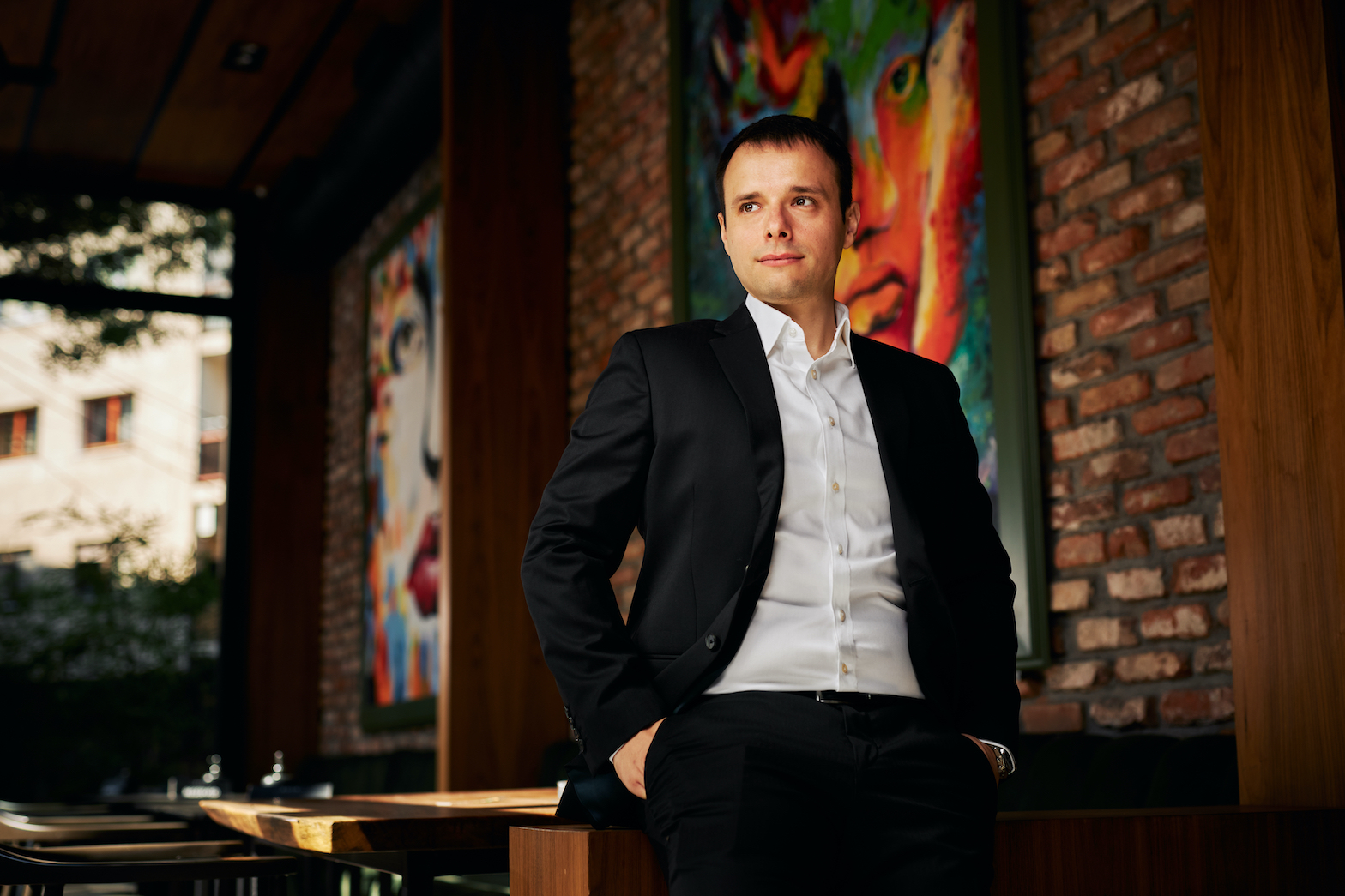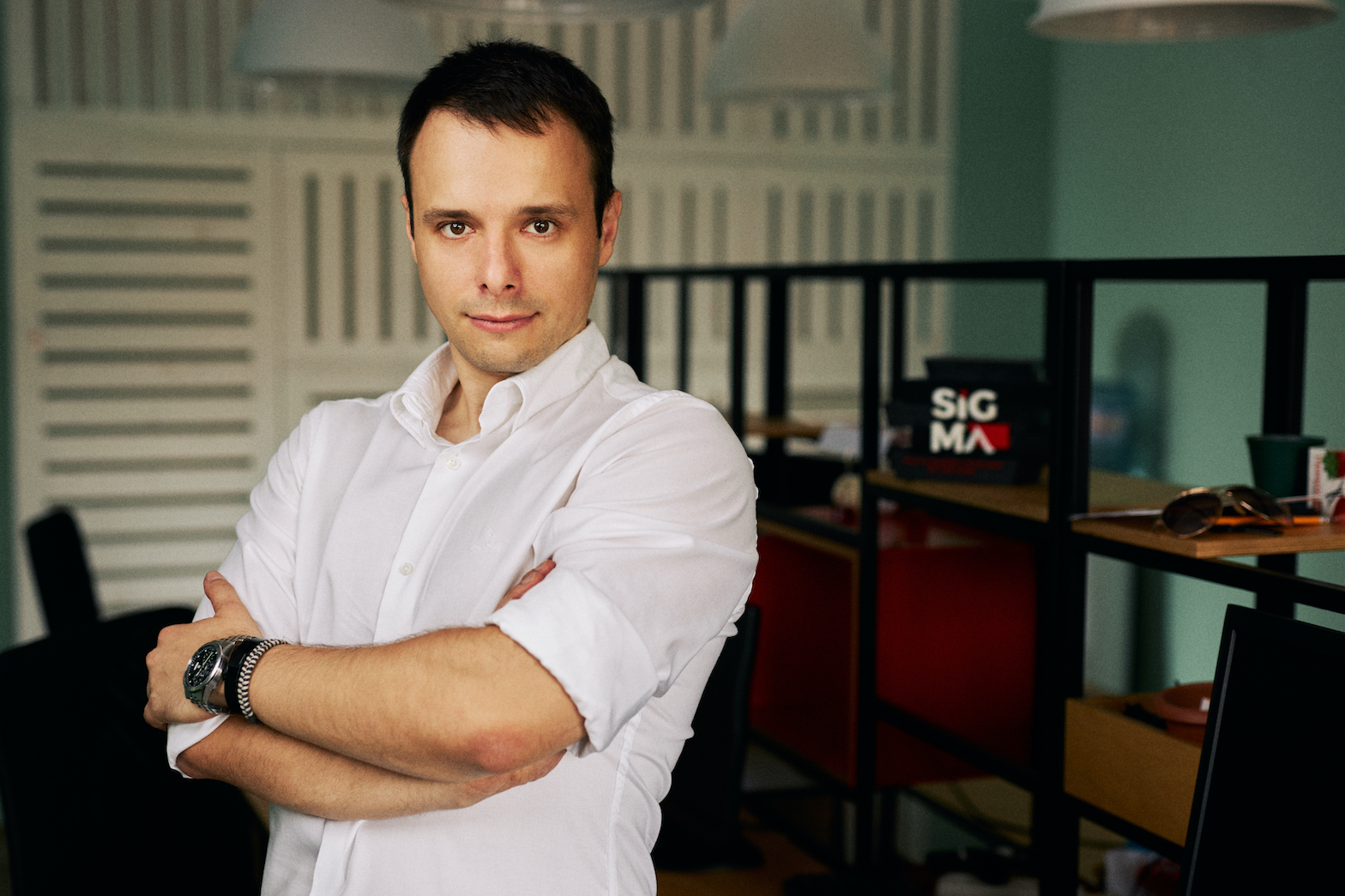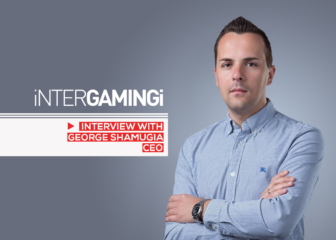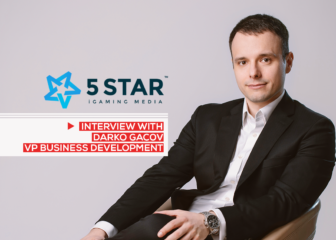After over-delivering in a 2011 partnership in Georgia, Singular skyrocketed into the mainstream, bringing with them vast, transferable experience from the banking and social gaming sectors. Speaking with Jeremy Micallef, Singular Founding Partner, Darko Gacov, explains his present vision for the company and what lies ahead for the industry.
Interview published in SiGMA Magazine, Issue 13, 2021
JM: Singular was initially established to service the banking sector and social gaming, before moving into iGaming and sports betting. Take us through the journey you’ve been through in the past decade.
DG: Two key aspects that define Singular: innovation and seizing opportunities. This drive to challenge the status-quo has pivoted our company into the exciting world of iGaming. The experience from the banking sector and the social gaming field gave us insight into big enterprise solutions, complex security transactional systems, and significantly high numbers of player interactions, all of which proved useful within the iGaming field.
However, the real take-off started in 2011 with the partnership with Adjarabet, the biggest gambling operator in Georgia. The business grew globally, with Singular as the sole software provider.
In the last 10 years, we have continuously worked on rolling out new features across our product portfolio: iGaming and Sports Betting platform alongside a Retail solution and a Casino Core system with more than 7000 games. Today Singular powers the largest global operators.

Photo credits: AniDimi
JM: You’re consistently being awarded due to the quality of your products. What does it take to play at the highest levels of the industry?
DG: Our clients are Tier 1 operators and positioned as market leaders. They are exceptional at what they do, and frequently they are our drive to push even stronger.
The supplier side of the iGaming industry is, at its core, a tech industry – a playing field for creating powerful, reliable, and most importantly flexible software. However, to play at the highest level you have to dare to experiment, to innovate, and to learn continuously. We, as a team, continuously work on new customer-centric approaches, whether this is player engagement, new revenue streams for our clients, or novel solutions for operations and risk assessment. The innovation process is just as important when it comes to your development process. The agility of your team to deliver new features to the clients in a regular and constant manner is the solid foundation of the company’s success and innovation potential.
JM: What aspects of your product, and platforms in general, do you find operators are drawn to? Is this also reflected in how the players interact with it?
DG: Player interaction, or better if we say “player engagement”, is a big part of what makes our platforms competitive. Singular Solutions create ultimate synergy between our segmentation and recommendation engines and the marketing and RM tools combined to create a strong gravitational force that attracts, engages, and retains players.
However, I would say the key aspect that makes our solution attractive, particularly among clients that aspire for fast growth in newly-regulated markets, is the flexibility to adapt to different jurisdictional regulations, localize both, to the client and market needs, at the same time addressing unique player demands. I strongly believe there is no significant impact and real success without adaptation to the needs of the operator and market localization. Needless to say, this is not a one-time job.
I strongly believe there is no significant impact and real success without adaptation to the needs of the operator and market localization. Needless to say, this is not a one-time job.
JM: How is the above influenced by the different environments you supply platforms in? (i.e. iGaming & Sports Betting)?
DG: All our solutions have a modular architecture. The PAM, or as we internally call it the CORE iGaming Platform, is a combination of more than 30 different autonomous modules that work together to deliver the ultimate experience. The modularity allows us to tailor the platforms’ components in a unique way for each of our clients. In this way, we are also able to use specific modules, products, or services that our clients have internally developed as one of their business’ key strengths. These can be the data feed for one client or the CRM solution for another.
Every client of ours has an entirely separate, independent instance of our products. No two clients of ours have any intersection. What this means is that we can even go to the lengths of saying that one client would have a different product than another, even though they both would be utilizing our sportsbook solution. The peculiarity of our business model shapes the way we build and develop our products. Our intent is not to serve 300 operators but to conquer the industry with a select few.
JM: What emerging markets do you have your eye on? Does this impact your products in any way?
DG: We have been expanding our presence in Eastern Europe, Africa, and the Balkans, each with very distinctive market demands. Just as a general overview, if we look at Africa, the market has tremendous potential for online gambling given the high penetration of internet and mobile usage. However, operators are not able to reach the maximum aptitude of online betting due to numerous market challenges starting from low powered devices, continuing to high-latency internet. The continent is also heavily reliant on retail presence.
Eastern Europe has a better infrastructure but requires a high level of flexibility to both meet the different regulatory standards and create an exceptional user experience for the players in a particular market. The adaptability pace is singularly essential for new emerging markets where the first-mover advantage and fast time to market can determine who dominates the playing field.

Photo credits: AniDimi
The U.S market is another huge opportunity that we are looking into. This market also poses a challenge due to the market’s unique characteristics in terms of players’ expectations, which puts a different spin on both products and approaches. Thanks to the flexibility of our solutions we can give operators the freedom to create a brand that addresses the local demands. Even though this is the case, particularly for the U.S, we are not only planning to adapt the existing solution but tailor the product in a way that it will give us and our clients an edge over the competition.
The adaptability pace is singularly essential for new emerging markets where the first-mover advantage and fast time to market can determine who dominates the playing field.
JM: You’re currently on a 4th generation Sports Betting Platform at Singular. What thought process goes into creating one, and did that process change over every generation?
Every change that we make is a result of thorough market research analyzing the players’ expectations, but also the innovation of our R&D and the industry. We don’t look only into the player journey searching for new acquisition and retention tools, but also into the way our clients manage their day-to-day operations, create their marketing strategy, assess risk management, and create their offerings.
Our clients are an essential source for developing our product roadmap. We work closely with them to maximize their benefit from using our platforms. In addition to the tools for player personalization, one of the areas that further differentiate the 4th generation of our Sports Betting Platform is on the level of sportsbook operations with the match-centric control center. Bookmakers have full control over the players’ betting lifecycle by applying configurations on the event-level.
We see the sportsbook of tomorrow as a complex entertainment center, infusing media components and blending social aspects to address the habits and interests of different generations.
JM: Esports has been an up-and-comer in the realm of sports betting, particularly as of late. Considering the sector’s popularity and the massive amount of revenue it has been generating in the past decade, do you think esports is here to stay?
DG: It is an interesting question because, not to be arrogant, but we had an impact on how this sector became what it is today. From time to time, I, Akaki, and George, the three founders of Singular, take on personal projects for R&D purposes. Back in 2012, I tackled an esports-related idea when the R&D process went so hands-on that I started playing the games and got involved in the communities.
We found that for a successful eSports product, we need a new, different, and dedicated solution. The solution must be curated by the sector opinion-makers, whether this is players or casters, people engaged with the communities. The product would much more resemble a gaming-related UX as opposed to a sportsbook UX.
There are differences between sport and eSport. For instance, the engagement level. You don’t only observe, cheer, and support, but also take a direct part in eSports. A 15-year-old, playing from his house can become the equivalent of Messi in eSports. On top of that, we have available and quantifiable data that creates opportunities for significant data modelling and ways in which outcomes can be shaped into engageable events.
Although the eSports vertical has not been part of Singular’s long-term strategy, we decided to share our findings and concept with key industry professionals. It’s a great pleasure to see some of those ideas being implemented today in the field. Now, with a thorough understanding of the sector and a side effect of me building a gaming rig and having gaming as a hobby, I can safely say that esports not only is here to stay but is still warming up.



